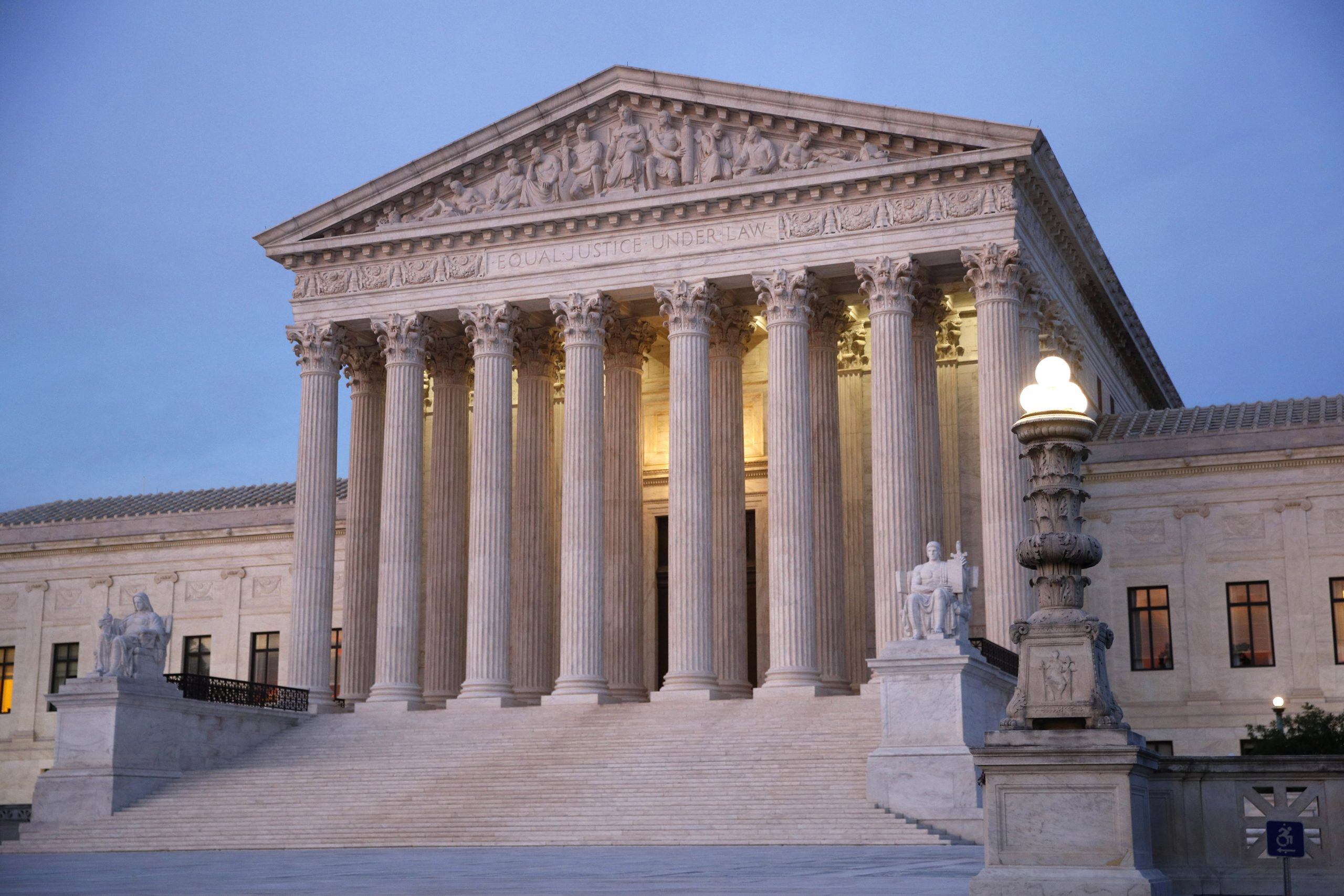What To Know Today
SCOTUS holds oral arguments in the biggest gun rights cases in more than a decade. In New York State Rifle & Pistol Association. v. Bruen, the court is hearing a challenge to New York’s “may-issue” law requiring people applying for handgun licenses to demonstrate a pressing need to carry concealed firearms. The U.S. solicitor general will also be defending the state’s law at the high court today. A sign of the intense interest on both sides, more than 80 amicus briefs were filed in the case. While many experts believe the 6-3 conservative court will invalidate New York’s statute, a more sweeping ruling could imperil other public gun restrictions as well. “About a quarter of the U.S. population lives in a state that has a gun law similar to New York’s,” Joseph Blocher, a Duke law professor, told The New York Times. “If the court strikes this law down, it could have a significant impact on the lives of tens of millions of Americans.” You can tune in to live audio here. The Trace’s Jennifer Mascia spoke more about the case on WBUR’s On Point.
A quick election recap. Here are the highlights from some of yesterday’s races and ballot questions that had implications for gun violence prevention efforts:
- Democrat Eric Adams will be New York City’s next mayor. The former NYPD officer wants to approach violence prevention in a “both-and” way combining an increase in police with other more community-led interventions.
- Glenn Youngkin was elected governor of Virginia. The Republican defeated former Governor Terry McAuliffe, ending the Democratic trifecta at the statehouse that enabled outgoing Governor Ralph Northam to pass a historic package of gun reform laws.
- Larry Krasner was re-elected Philadelphia district attorney. The progressive prosecutor, who worked to dismantle the tough-on-crime policies of his predecessors, faced strong blowback among police unions and their allies, as well as some residents from communities facing surging violence.
- Minneapolis voters soundly rejected a measure to scrap the police department. The ballot question asked if residents wanted to replace it with a new Department of Public Safety under the direction of the city council. On the flip side, voters in Austin, Texas, easily defeated a ballot measure that would have increased police staffing levels and voters in Cleveland approved a change to the city’s charter to increase civilian oversight over the police.
You can find detailed results from these and many other races in Daniel Nichanian’s indispensable state and local election guide.
Giffords sues two NRA affiliates for alleged campaign finance violations. The suit, filed on behalf of the gun reform organization by Campaign Legal Center Action, argues that the NRA’s Political Victory Fund and Institute for Legislative Action made up to $35 million in illegal campaign donations across the 2014, 2016, and 2018 elections. Giffords previously sued the Federal Election Commission for failing to take action on four complaints it submitted alleging campaign finance violations. Those complaints were spurred by our reporting laying out evidence that the NRA and its vendors used apparent shell companies to evade rules prohibiting coordination between outside groups and the campaigns they support. On Monday, a federal judge ruled that as a result of the FEC’s failure to act, the plaintiffs could sue the NRA directly. The new Giffords suit is seeking a penalty equal to the amount allegedly spent illegally, as well as an order to prevent the NRA from flouting campaign finance law in future elections.
The 2020 rise in homicides continued through the first three quarters of 2021 — but there are signs it’s slowing. From January through September, homicides rose by 4 percent over the same three quarters in 2020, according to an analysis of 29 cities by the Council on Criminal Justice. Homicide rates peaked in summer 2020, and numbers have remained elevated, but they are still far below the record highs of the 1990s.
New Mexico bans guns, other weapons at the state Capitol. The legislative panel that oversees security for the state house voted to restrict all firearms and other weapons, with exceptions granted for law enforcement and on a per-case basis determined by legislative leaders. The vote was 8-5, with all Democrats in favor and all Republicans opposed. The policy will take effect on December 6, when lawmakers are set to meet about redistricting.
Data Point
$30 million — the investment Michigan is proposing to make in community violence prevention and intervention programs. [The office of Governor Gretchen Whitmer]

